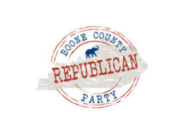Hartford, CT — A six-year court battle has produced a major victory for free speech in Connecticut.
Today, the Connecticut Supreme Court ruled in favor of Joe Markley and Sen. Rob Sampson, two 2014 state legislative candidates represented by the Institute for Free Speech in their case against the State Elections Enforcement Commission (SEEC). The court’s decision upholds the right of publicly funded candidates to freely discuss issues and policies without fear of reprisal if they mention or criticize a candidate in a race other than their own.
In 2014, Markley and Sampson, both running for state legislative seats, used campaign funds to promote their own election campaigns by criticizing the policies of then-Governor Dannel Malloy. The SEEC fined the candidates $2,000 and $5,000, respectively, claiming their communications improperly opposed a candidate in a different race. The Institute filed an appeal on behalf of Markley and Sampson in court, arguing that the SEEC’s actions and the laws underlying those actions violated the First Amendment.
After a slow-moving legal process, today’s ruling finally decided the merits of the case. In its ruling, the Connecticut Supreme Court held that the SEEC’s restrictions on campaign speech were not narrowly tailored to achieve a compelling state interest.
The court emphasized that candidates must be free to discuss issues and policies, even if doing so involves mentioning other political figures. In its opinion, the court said that a communication referencing another candidate is only improper if it is the “functional equivalent of express advocacy” against that candidate, which is a high bar that protects free speech.
As a result, the Supreme Court reversed the prior judgment against Markley and Sampson, remanding the case to the trial court with the direction to sustain the plaintiffs’ administrative appeal.
“This ruling is a resounding victory for free political speech and the First Amendment,” said Chip Miller, Senior Attorney at the Institute for Free Speech. “This policy was implemented to shield an unpopular governor from criticism by other elected officials and candidates. A robust First Amendment must afford strong protections to political speech. Otherwise, those in power will seek to silence opponents.”
Joe Markley praised the outcome, stating, “I’m happy and relieved to see that this court recognized a candidate’s right to speak freely about the issues that matter to constituents. This win was a long time coming, but it was a crucial victory for free speech in Connecticut.”
Rob Sampson likewise applauded the ruling, adding, “This decision is a win not just for us, but for all candidates who want to engage in robust political discourse freely and without fear of facing unconstitutional consequences.”
The court’s ruling sends an unmistakable message that publicly funded candidates retain their full right to free speech and that the government cannot penalize them simply for discussing issues and policies relevant to their campaigns, even if their speech cites the name of a governor running for reelection.
To read the court’s full opinion, click here. To read more about the case, Markley v. State Elections Enforcement Commission, please visit the case page here.
About the Institute for Free Speech
The Institute for Free Speech promotes and defends the political speech rights to freely speak, assemble, publish, and petition the government guaranteed by the First Amendment.













